The unavoidable reality of daycare is that most babies will have a harder time getting the good, restorative daytime sleep they need. That being said, know that sleep training daycare babies is totally possible!
In this blog post, I’m going to go over:
What You Need to Remember About Sleep at Daycare
4 Tips for Sleep Training Daycare Babies
Let’s dive right in!

What You Need to Remember About Sleep at Daycare
Lower Your Expectations
When it comes to naps at daycare, it’s essential to adjust your expectations. A 30-40 minute nap at daycare is considered a successful nap in my book! Understand that daycare settings can be stimulating, and it may take some time for your baby to adjust to the new surroundings and routines.
Try Not to Stress
Transitioning to daycare can be a significant adjustment for your little one(s) AND you. It’s natural to feel anxious about how your baby will adapt to the new environment.
Babies who go to daycare WILL learn to adapt! With some time and patience, babies attending daycare will learn to adjust to the new surroundings, schedules, and caregivers. Providing love, consistency, and reassurance when you are will your little one will help ease the transition for both of you.
Weekend Sleep
It’s totally fine to have a different sleep schedule to allow your little one to catch up on sleep they may have missed throughout the week. This may involve slightly altering nap times or even bedtime to accommodate for any sleep deficits they’ve accumulated throughout the week. By prioritizing their rest on the weekend, you can help ensure that you and your baby remain well-rested.
Prevent Overtiredness
To help your baby from becoming overtired, consider implementing different strategies to promote some additional rest. One approach is to incorporate a cat nap in the evening to help bridge the gap between daycare and bedtime. Another option is to bump bedtime earlier to make up for any lost sleep that day.
Click here to read more about this on Instagram.
The Daycare Sleep Regression
The daycare sleep regression is when your baby starts daycare and then suddenly, their sleep totally falls apart. These sleep regressions can come in three different forms: poor naps at daycare, poor naps when at home, and poor nighttime sleep.
In my “Daycare Sleep Regression: What it is and how to get sleep back on track!” blog, I go over the three possible daycare sleep regressions and tell you how to work through them.
Know that if your little one’s sleep does fall apart once they start daycare, it WILL bounce back! This is just another bump in the road as you help your little one navigate the adjustment. Remember, during a sleep regression, the best thing that you can do is to calmly evaluate your different options to help get your little one the good, restorative sleep that they (and you) need.
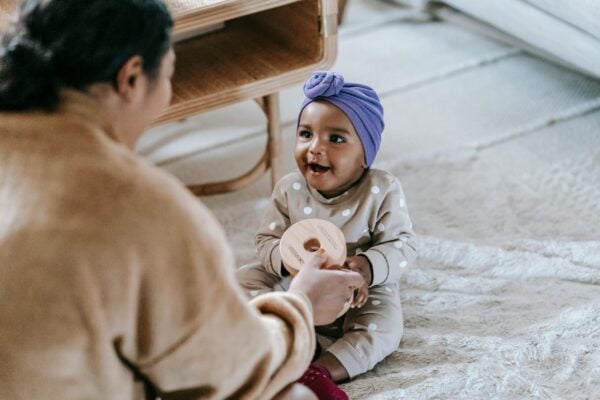
4 Tips for Sleep Training Daycare Babies
The best place to learn how to actually sleep train is the 4-24 Months Course. But these four tips will help walk you through how to make adjustments to your sleep training journey if you’re little one will be in daycare. Because your daycare provider won’t sleep train for naps, here are four tips to navigate sleep training daycare babies:
1. Start over a weekend
Starting the sleep learning/sleep training process over a weekend allows for concentrated efforts without the interruption of work schedules. It’s a time when you can ideally more easily focus solely on establishing healthy sleep habits for your little one.
Utilizing a more accelerated approach and allowing for some protest during this time can be effective, even if daycare providers do not do the same. Starting on a Saturday morning (or depending on your particular work schedule), for instance, gives you two full days to observe progress and make adjustments as needed. Consistency is key during this initial period as you help your baby lay the foundation for independent sleep while at home AND daycare. If you are only sleep training on the weekends, plan on devoting 2-3 weeks. Grab the course to walk you through the entire process!
2. If possible, take a day off of work
If it’s at all a possibility for your family, take a day or two off of work to add time to your weekend of sleep training. Typically after 3-4 days, your baby will have learned how to fall asleep unassisted a whole lot better.
This extended period allows for more intensive focus and consistency, which can expedite the sleep learning process for your baby. By dedicating this extra time, you can observe patterns and fine-tune your approach to best meet your baby’s sleep needs.
3. Opt for a more gradual approach
Opting for a more gradual approach helps to mirror the interventions that they’ll be using at daycare. This is the least invasive option, but will also take the longest. It will also require the most intervention from you…but it is so worth it for a lot of mamas!
Patience and consistency are essential if you opt for a more gradual approach. Progress may be slower, but can be equally effective in the long run.
4. Talk to a Certified Pediatric Sleep Consultant
In a consultation with a Certified Pediatric Sleep Consultant, we can help nail down the nuances of your baby’s sleep situation, their personality, and your family’s schedule. Together, we can get a custom plan that will work for your whole family! In the sleep learning/sleep training process, there can be some kinks to work out here and there, which is why having a sleep expert in your corner to support you every step of the way is so helpful!
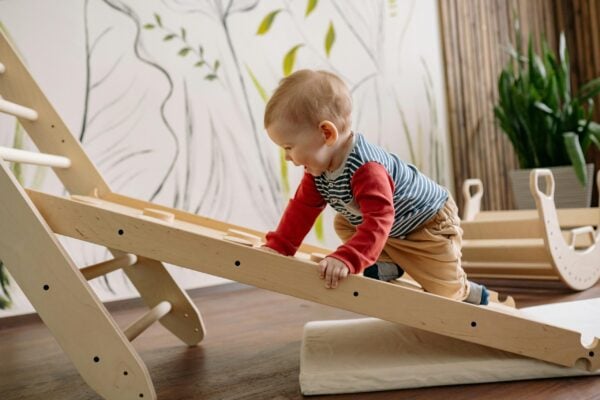
Recap on 4 Tips for Sleep Training Daycare Babies
Please know that daycare babies CAN be good sleepers! I have an entire troubleshooting guide with everything you need to know when it comes to baby sleep and daycare in the 4-24 Months Content Library.
If you need support with your baby’s specific sleep needs or have any other questions about navigating fussiness, we would love to work with you. Click here to hop on a call with one of our AMAZING Certified Pediatric Sleep Consultants!
Whether your little one is a newborn (0-4 Months Content Library), 4-24 months (4-24 Months Content Library), or a toddler (2-5 Years Content Library), we have the resources you need to get your family the sleep you all deserve!
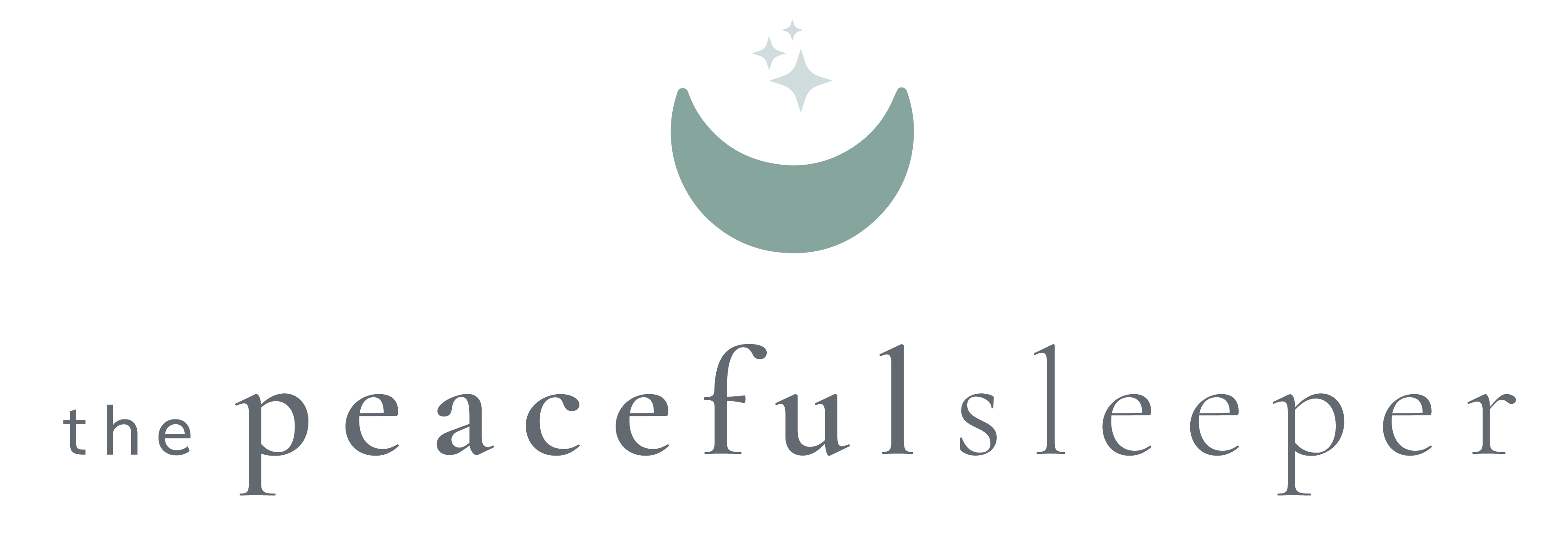
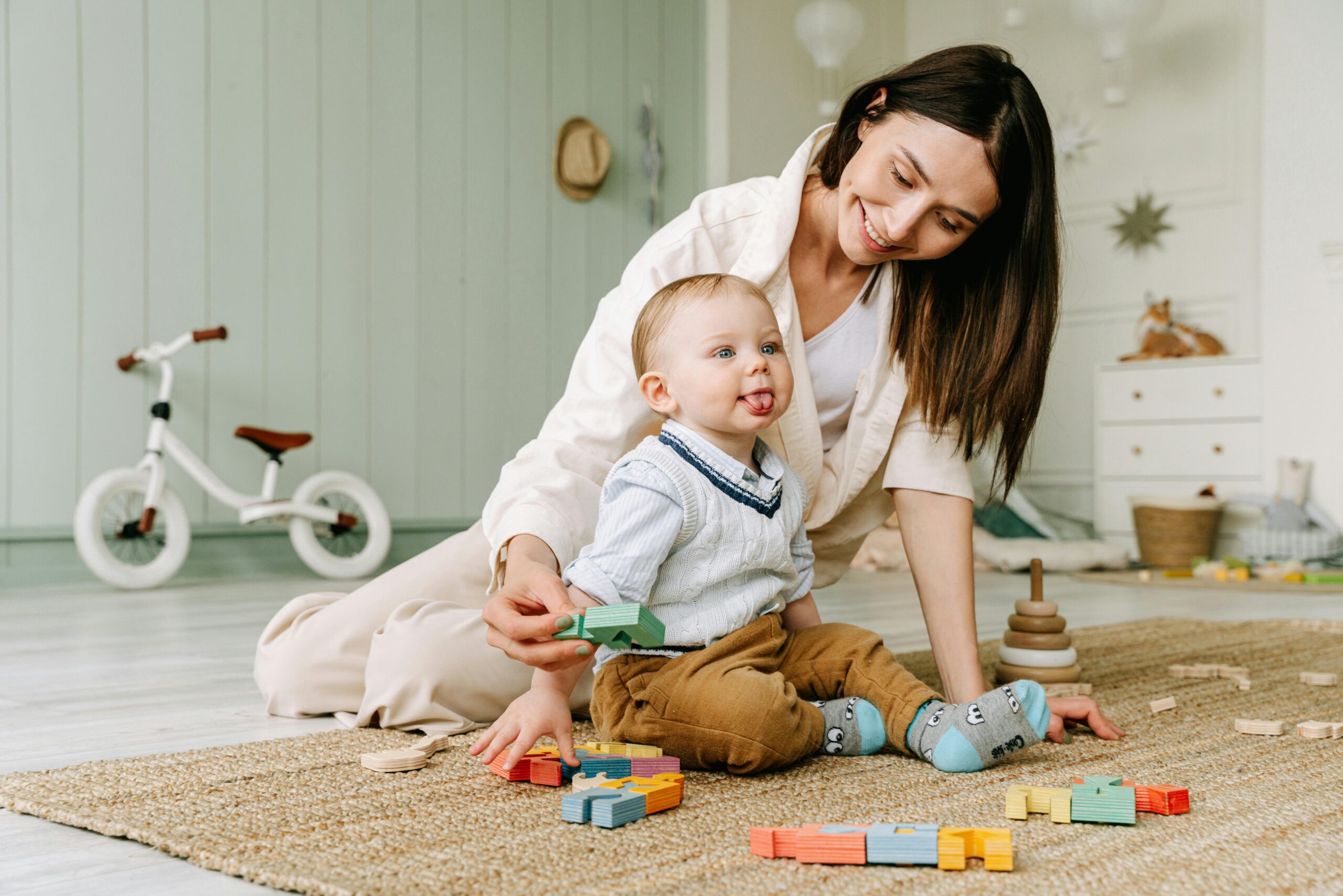

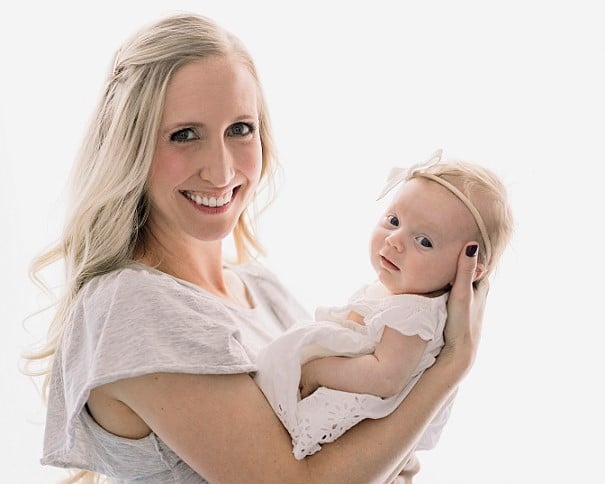
0 Comments